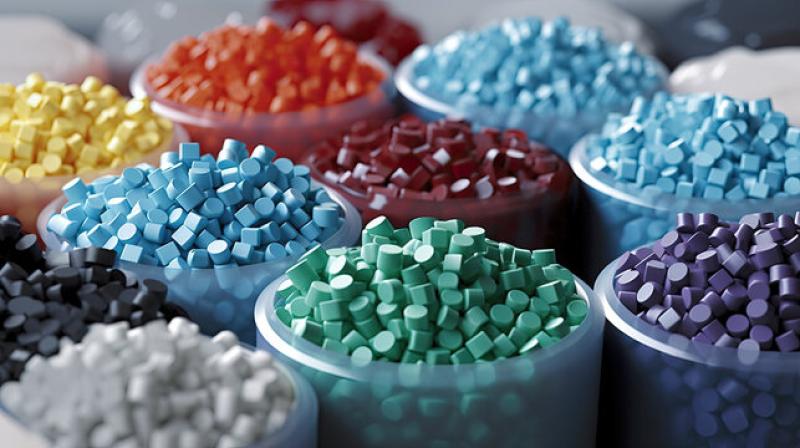Specialty polymers have increasingly become integral materials across various industries due to their advanced properties tailored for specific applications. These polymers are designed to deliver performance beyond conventional plastics, offering exceptional resistance to heat, chemicals, and mechanical stress. Specialty polymers cater to segments such as aerospace, automotive, electronics, healthcare, and packaging, where enhanced durability, reliability, and functionality are paramount. Their widespread adoption is driven by the escalating demand for lightweight, high-performance materials that meet stringent regulatory and environmental requirements.
Key Properties and Distinct Characteristics of Specialty Polymers
Specialty polymers distinguish themselves from commodity plastics through superior physical, chemical, and mechanical properties. Depending on their chemical composition, these polymers can exhibit remarkable thermal stability, UV resistance, flame retardance, and dimensional stability. For example, polymers like polyether ether ketone (PEEK) and polyphenylene sulfide (PPS) are widely valued for their high temperature resistance and chemical inertness, making them suitable for demanding environments. Specialty polymers also demonstrate excellent electrical insulating properties, which make them essential in electronic components and insulating materials. Additionally, certain specialty polymers are engineered for biocompatibility, serving critical roles in medical devices and drug delivery systems.
Diverse Industrial Applications Driving Specialty Polymer Demand
The versatility of specialty polymers allows their use in multiple industrial applications spanning from automotive under-the-hood components to microelectronics and membrane technologies. In the automotive sector, specialty polymers contribute to weight reduction while enhancing fuel efficiency and emission control, aligning with the global push towards greener mobility solutions. Electronics manufacturers utilize specialty polymers in flexible circuits, connectors, and encapsulants due to their electrical insulation and flame retardant features. Healthcare fields extensively employ specialty polymers for implants, prosthetics, and sterilizable medical instruments, where material reliability directly impacts patient safety. The packaging industry exploits specialty polymers to create barrier films that extend product shelf life while maintaining sustainability goals. This broad industrial adoption underpins a continuous upward trend in specialty polymers consumption.
Recent Technological Advances Enhancing Specialty Polymer Performance
Ongoing innovation in polymer chemistry and processing technologies has led to the development of new specialty polymers with improved properties and multifunctionality. Advances such as nanocomposite integration, polymer blending, and surface modification techniques enhance mechanical strength, thermal resistance, and chemical compatibility of specialty polymers. Additive manufacturing and advanced extrusion methods have also contributed to precision molding and fabrication of complex polymer components, enabling customization for specialized needs. Moreover, the emergence of bio-based specialty polymers is revolutionizing the market by combining performance with environmental sustainability, reducing reliance on petrochemical sources, and supporting circular economy principles.
Navigating Market Intelligence: Comprehensive Specialty Polymers Research Reports
For businesses and professionals seeking in-depth market insights, comprehensive specialty polymers research reports offer valuable information on industry trends, competitive dynamics, and emerging opportunities. These reports provide detailed analyses of market segmentation by polymer type, end-use industry, and geographic region. They also highlight key market drivers such as increasing industrial automation, demand for lightweight materials, and regulatory frameworks related to environmental impact. Accessing such market intelligence aids stakeholders in strategic planning, product development, and investment decision-making, ensuring alignment with evolving industry landscapes.
Commercial Availability and Supplier Landscape in Specialty Polymers Sector
The specialty polymers market is characterized by a diverse supplier base that caters to varying industrial requirements. Leading chemical manufacturers and specialty resin producers supply a wide range of polymers, including fluoropolymers, engineering plastics, and high-performance composites. Commercial availability often includes standard grades as well as customized formulations tailored to specific client needs. Sourcing specialty polymers requires consideration of factors like product certifications, supply chain reliability, and after-sales technical support. Due to the high value associated with these polymers, suppliers frequently collaborate closely with end-users to foster product innovation and application optimization, strengthening commercial relationships across the value chain.
Transaction Insights on Specialty Polymers Procurement and Supply
Procurement of Specialty Polymers generally involves strategic transactions that emphasize long-term partnerships and technical collaboration. Given the specialized nature of these materials, companies often engage in direct negotiations with manufacturers or authorized distributors to secure consistent quality and supply volumes. Price dynamics for specialty polymers are influenced by raw material costs, technological advancements, and demand fluctuations within key industries such as automotive and electronics. Bulk purchasing agreements and supply contracts frequently incorporate clauses related to customization, delivery schedules, and regulatory compliance. Understanding these transactional elements is crucial for organizations aiming to optimize their material sourcing strategies and maintain competitive advantage.
In conclusion, specialty polymers represent a dynamic and vital segment of modern material science, influencing multiple industrial domains through their tailored properties and applications. Their continued growth is shaped by technological innovation, expanding end-use sectors, and evolving market demands. For stakeholders seeking to deepen their understanding of market trends, growth forecasts, and competitive landscapes, accessing detailed specialty polymers market intelligence reports is essential for informed decision-making and sustainable business development.
‣ Get this Report in Japanese Language: スペシャリティポリマー市場
‣ Get this Report in Korean Language: 특수폴리머시장
‣ Read More Related Articles: The Ultimate Paint Cans Guide: Types, Sizes, & Uses Explained
Author Bio:
Money Singh is a seasoned content writer with over four years of experience in the market research sector. Her expertise spans various industries, including food and beverages, biotechnology, chemical and materials, defense and aerospace, consumer goods, etc. (https://www.linkedin.com/in/money-singh-590844163 )
